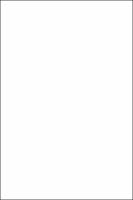The Figure of Knowledge
Conditioning Architectural Theory, 1960s - 1990s
Contributor(s)
Loosen, Sebastiaan (editor)
Heynickx, Rajesh (editor)
Heynen, Hilde (editor)
Language
EnglishAbstract
"It is a major challenge to write the history of post-WWII architectural theory without boiling it down to a few defining paradigms. An impressive anthologising effort during the 1990s charted architectural theory mostly via the various theoretical frameworks employed, such as critical theory, critical regionalism, deconstructivism, and pragmatism.
Yet the intellectual contours of what constitutes architectural theory have been constantly in flux. It is therefore paramount to ask what kind of knowledge has become important in the recent history of architectural theory and how the resulting figure of knowledge sets the conditions for the actual arguments made.
The contributions in this volume focus on institutional, geographical, rhetorical, and other conditioning factors. They thus screen the unspoken rules of engagement that postwar architectural theory ascribed to."
Keywords
architectural theory;critical historiography;intellectual history;semiotics;realism;philosophy;feminism;pragmatism;post-structuralism;critical regionalismDOI
10.11116/9789461663221ISBN
9789462702240, 9789461663238Publisher
Leuven University PressPublisher website
https://lup.be/Publication date and place
Leuven, 2020Grantor
Imprint
Leuven University PressClassification
Theory of architecture


 Download
Download Web Shop
Web Shop